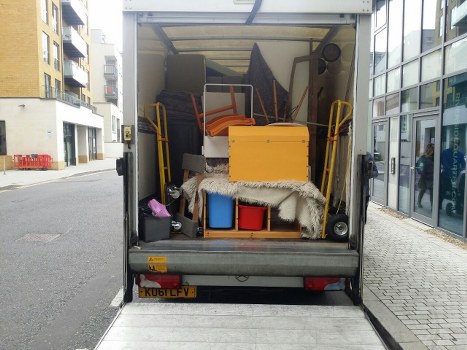Understanding Skip Permits in Millbank
What Are Skip Permits?

Skip permits are essential authorizations required for placing skip bins on public or private land in Millbank. These permits ensure that waste disposal is conducted in an organized and regulated manner, minimizing environmental impact and maintaining the aesthetic appeal of the area.
Obtaining a skip permit involves adhering to specific guidelines set by local authorities. These guidelines cover the size of the skip, duration of placement, and the exact location where the skip can be placed. Understanding these requirements is crucial for both residents and businesses looking to manage their waste effectively.
Without the appropriate permit, placing a skip can lead to legal consequences, including fines and removal of the skip by the council. Therefore, it is imperative to secure the necessary permits before arranging for a skip in Millbank.
Why You Need a Skip Permit in Millbank

Securing a skip permit in Millbank is not just a legal requirement but also a step towards responsible waste management. Proper permits help ensure that waste is disposed of correctly, reducing the risk of pollution and other environmental hazards.
Additionally, having a skip permit facilitates smoother waste collection and disposal processes. It allows waste management companies to plan their routes and schedules effectively, ensuring timely removal of waste without causing disruptions to local traffic or daily activities.
For businesses, especially those involved in construction or large-scale renovations, skip permits are indispensable. They provide a structured framework for managing large volumes of waste, ensuring compliance with health and safety regulations.
How to Apply for a Skip Permit in Millbank

Applying for a skip permit in Millbank is a straightforward process that involves several key steps. First, determine the appropriate size of the skip based on your waste disposal needs. Common sizes range from 4-yard to 40-yard skips, catering to both residential and commercial requirements.
Once you've selected the skip size, you'll need to complete the necessary application forms provided by the Millbank council. These forms typically require details such as the exact location where the skip will be placed, the duration for which it will be needed, and the type of waste you intend to dispose of.
After submitting the application, there may be a review process where the council assesses your request. This may include site inspections to ensure that the placement of the skip adheres to local regulations and does not pose any hazards to the surrounding area.
Cost of Skip Permits in Millbank

The cost of obtaining a skip permit in Millbank varies depending on several factors, including the size of the skip, the duration of placement, and the specific location. Typically, larger skips and longer permit durations incur higher fees. It's essential to consult the local council's fee schedule to get an accurate estimate of the costs involved.
Additionally, some areas may have premium charges for placing skips in high-traffic or aesthetically sensitive locations like Millbank Park or near historical landmarks. Being aware of these potential extra costs can help you budget appropriately for your waste disposal needs.
In some cases, businesses may be eligible for discounted rates or bulk permits if they require multiple skips or long-term waste management solutions. It's advisable to discuss these options with the council or your waste management provider to explore cost-saving opportunities.
Regulations and Compliance

Adhering to regulations is a critical aspect of obtaining and maintaining a skip permit in Millbank. These regulations are designed to ensure that waste disposal practices do not negatively impact the environment or the community. Key regulations typically include restrictions on the types of waste that can be disposed of in skips, guidelines for placement to avoid obstructing public pathways, and requirements for securing the skip to prevent unauthorized access.
- Waste Types: Only certain types of waste are permitted in skips, such as general household waste, construction debris, and green waste. Hazardous materials, including chemicals and asbestos, are strictly prohibited.
- Placement Guidelines: Skips must be placed in areas that do not block sidewalks, driveways, or public access points. Temporary fencing or barriers may be required to ensure safety.
- Duration: Permits outline the maximum duration a skip can remain on a site. Extensions may be possible but require additional applications and fees.
Non-compliance with these regulations can result in fines, removal of the skip, and potential legal action. Therefore, it's essential to familiarize yourself with the local rules and ensure that all conditions of the permit are strictly followed.
Tips for Managing Your Skip Permit
Plan Ahead
Proper planning is key to ensuring a smooth waste disposal process. Determine the amount and type of waste you will generate to select the appropriate skip size. This helps avoid overfilling the skip, which can lead to additional fees or the need for multiple skips.
Secure Permits in Advance
Permit applications can take time to process, especially during peak construction or renovation seasons. Applying well in advance ensures that your skip is placed without unnecessary delays, keeping your project on schedule.
Maintain Cleanliness
Keeping the area around the skip clean and free of debris enhances safety and adheres to local regulations. Regularly monitoring the skip to ensure it is not overflowing or attracting pests is also advisable.
Proper Waste Segregation
Segregating waste into recyclable and non-recyclable categories can streamline the disposal process and may also contribute to environmental sustainability. Many waste management services offer recycling options, reducing the overall environmental footprint of your project.
Common Mistakes to Avoid
When dealing with skip permits in Millbank, certain common mistakes can lead to complications. Avoid placing skips without obtaining the necessary permits, as this can result in hefty fines and the removal of the skip. Additionally, ensure that the skip is not obstructing public pathways or private property access points.
Another frequent mistake is overloading the skip beyond its capacity. Not only does this violate permit conditions, but it also makes waste collection more difficult and may require you to procure additional skips, increasing costs.
Lastly, failing to apply for permit extensions when needed can disrupt your project timeline. Always monitor the duration of your permit and apply for extensions promptly if your waste disposal needs extend beyond the initial permit period.
Benefits of Using Skip Permits
Utilizing skip permits in Millbank offers numerous benefits, ranging from legal compliance to environmental protection. By securing the appropriate permits, you ensure that your waste disposal practices align with local regulations, minimizing the risk of legal issues.
Moreover, organized waste management through permitted skips promotes recycling and responsible disposal, contributing to the overall cleanliness and sustainability of the community. It also streamlines the waste collection process, making it more efficient and less disruptive to daily activities.
For businesses, maintaining compliance with skip permit regulations enhances corporate responsibility and can improve community relations. It demonstrates a commitment to environmental stewardship and adherence to local laws, which can be favorable for brand reputation.
Choosing the Right Waste Management Provider
Selecting a reputable waste management provider is crucial when dealing with skip permits in Millbank. A reliable provider will assist you in navigating the permit application process, ensuring that all necessary documentation is correctly completed and submitted.
Additionally, experienced providers offer a range of skip sizes and flexible rental periods to accommodate different project needs. They also ensure timely delivery and collection of skips, adhering to the timelines specified in your permits.
Consider providers who prioritize environmentally friendly practices, such as recycling and proper disposal of hazardous materials. This not only aligns with regulatory requirements but also supports sustainable waste management initiatives in the community.
Conclusion
Skip permits play a vital role in the effective and lawful disposal of waste in Millbank. By understanding the requirements, applying for the necessary permits, and adhering to local regulations, individuals and businesses can manage their waste responsibly and sustainably.
Proper waste management through permitted skips not only ensures compliance but also contributes to the overall cleanliness and environmental health of the community. Whether you're undertaking a home renovation or a large-scale construction project, securing a skip permit is a fundamental step towards efficient and responsible waste disposal.
Contact us today to learn more about skip permits in Millbank and streamline your waste management process.